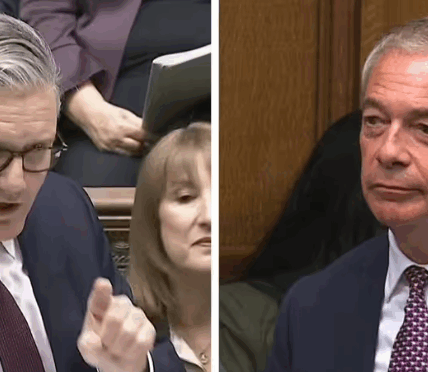Mayors will be allowed to introduce a new tax on overnight stays, with funding used for local schemes

Blackpool is a popular holiday destination but hotel costs could rise (Image: Getty)
A new hotel tax will add to the cost of holidays in the UK after Chancellor Rachel Reeves ignored warnings from struggling hospitality firms. Regional mayors are to gain the power to introduce new charges on overnight stays. The so-called hotel tax will allow them to raise more funding for local schemes, but trade body UKHospitality has warned it will hit businesses that still have not fully recovered following the Covid pandemic.
British people holidaying in the UK could pay an extra £518 million every year in total, on top of the extra charges paid by foreign visitors, the industry representatives said. The announcement of the new tax came today in advance of the Chancellor’s Budget. Mayors will be able to invest the money raised in transport, infrastructure, and economic development
Secretary of State for Housing, Communities and Local Government Steve Reed said: “Tourists travel from near and far to visit England’s brilliant cities and regions.
“We’re giving our mayors powers to harness this and put more money into local priorities, so they can keep driving growth and investing in these communities for years to come.”
According to UKHospitality, Brits took 89 million overnight trips in England in 2024 and stayed for total of 255 million nights, meaning a 5% holiday tax would cost a total of £518 million with the money added to hotel bills.
Holiday taxes are charged to consumers on top of VAT at 20%.
Kate Nicholls, Chair of UKHospitality, said: “This is a bill we will all have to pay, and will only serve to ramp up prices and drive inflation.
“It would effectively hike our VAT rate to 27% at a time when Ireland has cut VAT on hospitality to 9% and Germany already has a VAT level of 7%.
“We need to get consumers spending. But this, on top of the huge damage from last year’s Budget, would only mean people cut back more – and more jobs are lost.”
The Government says the move would ensure UK mayors have the same powers as their counterparts in cities like New York, Paris and Milan, where charges on short-term trips are already commonplace. But industry representatives say these cities have much lower levels of VAT or equivalent sales tax.
Any new levy would apply to visitors at accommodation providers including hotels, holiday lets, bed and breakfasts, and guesthouses.
Money raised could then help fund local projects that improve communities and enhance tourists’ experiences, that could potentially help attract more visitors – without needing approval from central government. Research also shows that reasonable fees have minimal impact on visitor numbers.
Ministers suggest that in London, the levy could go towards improvements to some of the capital’s busiest and famous streets to improve the experience for both visitors and Londoners, as well as supporting the city’s entertainment, sport and culture including helping smaller venues.
In Liverpool, it could help the city to support the major events that drive visitors – such as the upcoming UEFA EURO 2028 – and improving the infrastructure that visitors and locals rely on.
Regional mayors welcomed the announcement. London mayor Sadiq Khan said: “Giving Mayors the powers to raise a tourist levy is great news for London.
“The extra funding will directly support London’s economy, and help cement our reputation as a global tourism and business destination. It also shows what can be done when ministers work closely with Mayors to devolve more powers to cities and regions.
“As part of developing our plans for the levy we will work closely with the hospitality and tourism sectors to ensure it delivers the maximum benefits for London and our brilliant businesses.”
Mayor of Liverpool City Region Steve Rotheram said: “For too long, cities like ours have been expected to compete on a global stage without the basic tools that other places take for granted. Cities like Barcelona and Paris raise tens of millions each year through similar schemes – money that goes straight back into improving the visitor experience and supporting the local people who keep those destinations thriving.
“I’m pleased that the government has listened and acted – giving areas like ours the powers we need to support and grow our economies in a sustainable way. Our visitor economy is worth more than £6billion a year and supports over 55,000 local jobs. A modest levy is money that would stay local and be reinvested in the things that make our region stand out: our world-class culture, iconic events, vibrant public spaces and the infrastructure that ties it all together.”
Labour says the Chancellor’s Budget will include measures to cut hospital waiting lists, reduce Government borrowing and tackle the cost of living.
